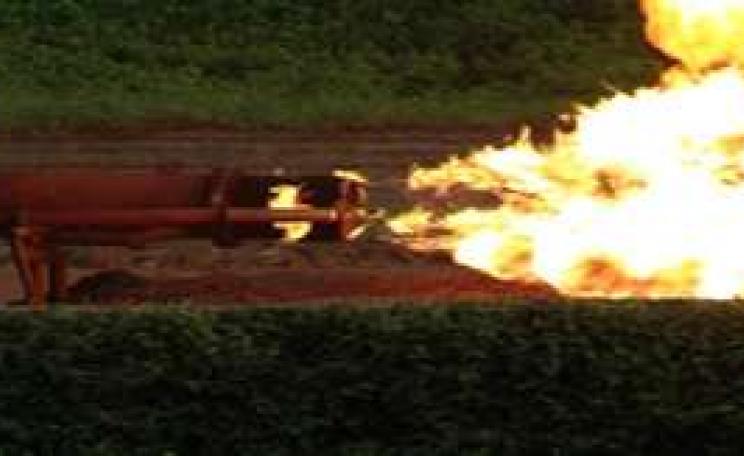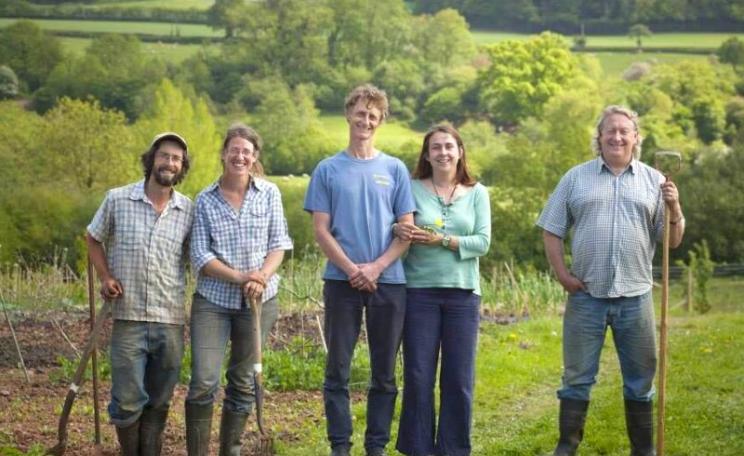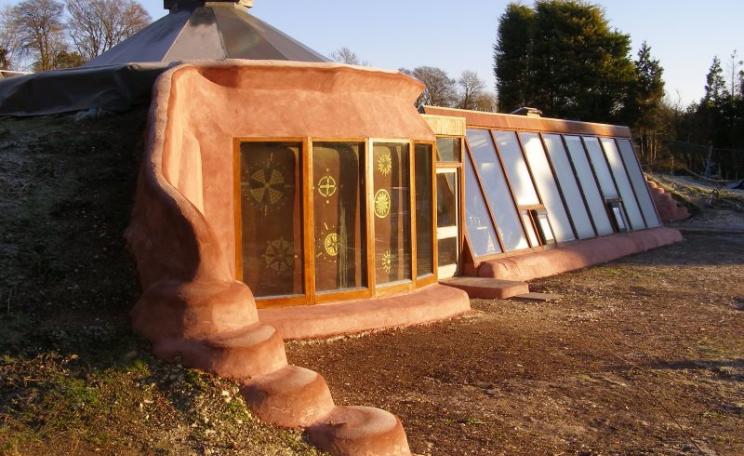Tell us how you came to make the film ‘Poison Fire’
Friends of the Earth International (FOEI) wanted to encourage national groups to produce video reports with local perspectives on how economic globalisation influences communities. They contacted me because they had heard about the work I had been doing in Tanzania with ‘participatory video’. A proposal was put together with Environmental Rights Action in Nigeria and FOEI managed to raise funds so that I could go there.
What is gas flaring and why does it occur?
Oil fields contain various amounts of natural gas. The Nigerian oil contains unusually high proportions of ‘associated gas’. The gas fraction is liquid under pressure and mixed with or dissolved in the crude oil, so there is no way to separate the gas from the oil until it reaches the surface. Flaring occurs simply because they have to dispose of the gas. In most other oil producing countries ‘associated gas’ is sold as natural gas, but in Nigeria there is little such infrastructure. The gas could generate an enormous amount of electricity, but there's no market as the consumers are too poor to pay for it.
What are the ecological and environmental issues in the Niger delta as a consequence of gas flaring (and oil exploration)?
The short answer is that nobody really knows. The local, ecological effects of gas flaring in Nigeria have not been studied. The minister for environment in Bayelsa State (in the Niger Delta, south Nigeria) told me that there is not a single laboratory in the Delta that can do even basic water analysis.
Local people blame gas flaring for a wide range of effects on their health and environment. They say it harms the crops, whether by acidification of the soil or through air borne toxins. Wherever you go in the delta, farmers will point to crops in bad condition and say that it's because of the gas flaring.
Gas flaring is also blamed for all kinds of medical trouble, from cancer to impotence. We know that it emits "a cocktail of toxins", including dioxin and benzene. The spills have a more immediate and obvious impact. Since the creeks flow both ways depending on tide and rainfall, the crude oil sloshes around and travels far in no time. It kills aquatic life, destroys all crops that it touches and pollutes the drinking water. It causes outbreaks of cholera since people abandon their toilets and drink any non-polluted water they can find.
What is the latest news of the Federal High Court of Nigeria’s ruling ordering Shell to phase out gas flaring by 2009?
This concerns two different processes. First, the Federal Government has ordered the oil companies to phase out gas flaring by 2009. But gas flaring has been illegal in Nigeria since 1983 and earlier they set 2004, 2006 as phase out dates so nobody believes they are serious. Shell says they will fail to meet the deadline because of the security situation. I have also seen claims in the Nigerian press that the federal government seeks to re-negotiate the contracts with the oil majors, and that one implication of this would be that the oil companies would have to finance the investment in ending gas flaring themselves. Second, there is the federal high court judgement that Jonah Gbemre from Iwherekan won on 14th November 2005 that required Shell to "immediately" stop gas flaring. Of course Shell couldn't just stop, so the judge eventually granted them a "conditional stay of execution".
The question that Ifie – local activist and participant in the filming - brought to Shell’s AGM [in 2006] in the Hague, the Netherlands concerned one of the conditions attached to this stay of execution: Shell was ordered to present a "detailed technical plan" for how they were going to phase out gas flaring within a year. They did not present such a plan. Their lawyers obstructed the court with procedural matters, court attendants gave different dates for the hearings to different parties. Shell was sued for contempt of court. The court file disappeared and in April 2007 the judge was transferred to Northern Nigeria.
As far as I know there's been no progress since. I thought this was sensational - it is as if Shell’s owners or board members do not care.
(see http://www.climatelaw.org/media/2007May2#fn1)
Can you talk about the concept of ‘participatory video’ (PV) used in the making of the film?
Video, just like writing can be used for good or for bad; for speaking truth to power and for propaganda. If you want to stay close to their story as told in their language, which is a spoken language, ‘participation’ is much easier with video than with writing. We can play back footage directly in the village. They can participate in the editing and verify the results as in "yes, this is what I mean".
A group of more or less literate storytellers can, to a much greater extent than with writing, be co-authors. A journalist who wants to "give voice" (I hate that expression, everybody has a voice already) to politically marginalised people would interview them and walk away with their notebooks for further processing. Of course we too walk away with our video tapes, but still, it is possible to watch, discuss and edit with the community, and that is in itself an extremely rewarding and inspiring process. In the Niger Delta I think "people's voices" have to a great extent been co-opted by chiefs, politicians, militants and NGOs who claim to speak on their behalf.
What is the importance of such a method of production in helping the strained relationship between local communities, oil officials and government?
Our goal was to establish a communication loop between communities, government and the company. Unfortunately Shell refused to play. We tried to talk to one of their community liaison officers when we bumped into him in the field, but didn't even get to say hello before his heavily armed police escort intervened. We tried to ask Shell staff to comment on our footage, we called them and approached them in field offices, in Yenagoa, Port Harcourt and Amsterdam, on our own and through community representatives, but the only time we managed to talk to Shell was at the AGM in The Hague. And there I suspect that Basil Omiyi, the Shell Nigeria MD, did not realise that we recorded the statements he made to Ifie.
While other filmmakers and journalists were arrested in this period we could move freely without interference from the security police. Many in the state government were interested and made efforts to fund and set up a community media centre that they wanted to use for community-based environmental monitoring. When Shell refused to give us permission to take pictures of the gas flares, Tina and Ifie started negotiating with the army unit that protected the station. They explained what we were doing. The officer in charge of the patrol allowed us to shoot the flares as long as we didn't capture any of the buildings. After a short while he stepped into the frame as the camera was rolling and asked us to record a statement. He said that his unit had lost fourteen men to rebel attacks in recent months, and that he did not think it was right that he had been sent to kill and be killed to protect a foreign company from his Nigerian brothers.
’Poison Fire’ is just one example of a story of everyday people against large multinationals. How is your film, and the approach taken, helpful to other communities and groups facing similar issues?
These companies are transnational, and local movements who try to stand up against them need international co-operation too. I recently got an email from Calgary, centre of the Canadian oil industry, from a guy who had seen the video on the web and asked for copies to show in local movie theatres. People there are mobilising against the same oil companies and the insane tar sands projects. They will invite Shell to screenings and ask why anybody would trust them when they behave like this in Nigeria. The film can help them hold Shell accountable, while they help the Nigerians put pressure on Shell.
Your film shows resistance through video-making and the law. Did you come across any radical, and violent, protests against Shell and the Federal (and national) Government?
The delta is a militarised zone and you cannot avoid soldiers, armed rebels, insurgents, political thugs and oil thieves. We had our encounters with them: soldiers aimed their guns at us once; thugs wanted to smash the camcorder on one occasion. Militants wanted to participate but we didn't want to tell their story. I attended a political meeting in Port Harcourt lead by Alhaji Asari Dokubo, by then the leader of a private militia that had successfully fought regular battles with the federal army and threatened to shut down the oil industry. I asked for an interview and was invited to his home the next day - a luxurious house surrounded by a wall with electric fence, surveillance cameras and watchtowers with armed guards. I went there with a guy from a village who sought advice on how to deal with the oil company thugs in his area.
We decided not to use this interview in the film since the militants are not representative of public opinion and aspirations. They are media savvy and get all the attention they want in the world press without our help. It is not true that they enjoy massive popular support among grassroots people. People in the Niger Delta, like everywhere, want peace above all. The Niger Delta is not at the brink of civil war, non-violent struggle remains the way forward.
How does your film – and the issues explored – resonate with wider, global issues?
To me the Niger Delta issues ARE the most urgent global issues of our time but in a local format: economic globalisation, peak oil, climate change, militarisation where a national army protects a foreign company from citizens, the divide between rich and poor, the geopolitics of oil. Nowhere are these trends so obvious and tangible as in the Niger Delta. On the one hand it’s depressing. On the other hand, if you look closer, it is inspiring: people are struggling, uniting, organising, demanding to be heard. They take Shell to court and win thanks to a courageous judge, there is all this debate and talking going on at every level. If they make progress in the Niger Delta, what are the rest of us waiting for?
How do you, as a filmmaker, hope to combat corporate indifference/non-transparency?
I’ve been asking myself that while cutting this film. I was shocked by what I witnessed in the Delta. The hypocrisy and double standards, the corruption and disregard for the law, the lack of common decency when a spill destroyed people’s livelihoods for a decade and Shell didn’t compensate, didn’t apologise, didn’t even clean up.
But I don’t see film making as a weapon for “combat”. I make documentaries and video training projects because I believe in dialogue. I want to create another platform for dialogue between communities, government, companies and consumers - one that is based on see-for-yourself and the spoken word. We took people’s questions to Shell’s offices in Kolo Creek, Yenagoa and Port Harcourt, and all the way to The Hague. But Shell stonewalled us. The commissioner for environment in Bayelsa State asked Shell to come and look at our footage in his office, but the Shell manager refused. I tried to get an interview through Shell’s press office in Amsterdam before finishing this short version of the film. I offered to give them questions in writing in advance and incorporate their answers in the film. But they refused to participate. This is now making it difficult to sell the film to mainstream TV, since they complain that we only hear one side of the conflict.
See the film here
Find out more at the Poison Fire website
This article first appeared in the Ecologist September 2008







